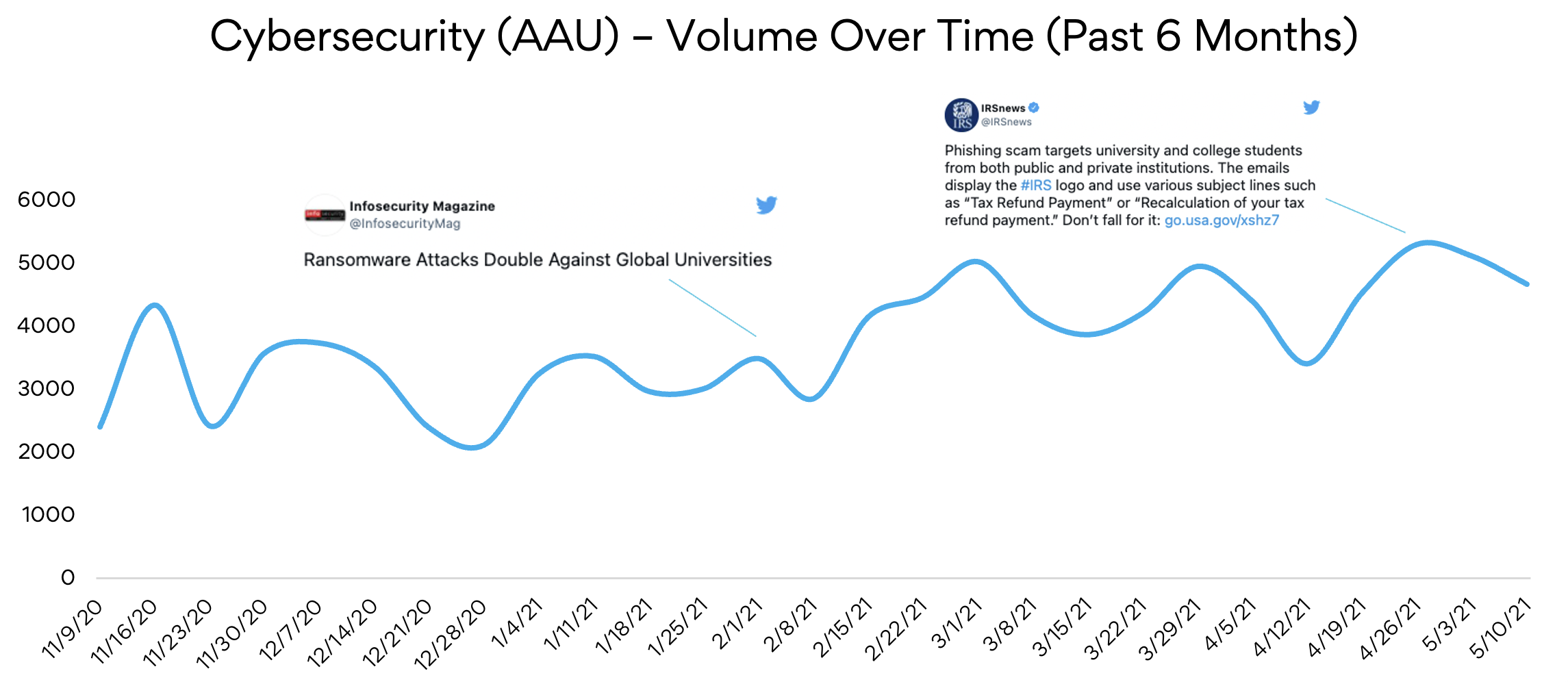After the source of nearly half of the U.S. East Coast’s fuel supply was shut down due to a cyber-attack involving ransomware last Friday, there has been increased attention drawn to the vulnerabilities of various U.S. infrastructures to hackers.
Higher education is not immune to these threats. On the same day that pipeline operator Colonial Pipeline was forced to shut its entire network, much of the computer network of Rensselaer Polytechnic Institute was temporarily suspended due to unauthorized access being detected. Student assessments, research, and other activities including final exams were unavoidably canceled as the institute dealt with the security incident. More resources on this topic are available in the Canary platform.
A Deeper Look (Past 6 Months):
- There have been 533 online news articles and more than 102K online mentions of cybersecurity topics as they relate to higher education since November 2020
- Top online news coverage around cybersecurity was mixed within the higher education space, with many articles highlighting the accomplishments of various institutions
Journalist Nidhi Razdan says her Harvard University offer was fraudulent, calls it a phishing attack (Scroll – 6.2K Engagements)
Cybersecurity Team Wins 4th National Championship | University of Central Florida News (UCF News – 796 Engagements)
IRS Warns of Phishing Campaign Targeting University Students and Staff(Bit Defender – 548 Engagements)
Mizzou Cybersecurity Center Forms Industrial Advisory Board – University of Missouri College of Engineering (Mizzou Engineering – 229 Engagements)

Did You Know?
With cryptocurrencies trending daily online, we took a quick look at its impact in higher education. Did you know that King’s College, a private liberal arts school in New York, has accepted Bitcoin cryptocurrency as a means of tuition payments since 2014? The college has stated that they see the use of Bitcoin as a part of freedom of speech and that their decision to allow their students to pay using the cryptocurrency was based on the Bill of Rights, aimed to “empower citizens”
While King’s College is still the only U.S. higher education known to accept Bitcoin as tuition payment, the University of Puget Sound has accepted Bitcoin as an alumni donation, and Florida Gulf Coast University has a scholarship endowment that was deposited through the cryptocurrency

